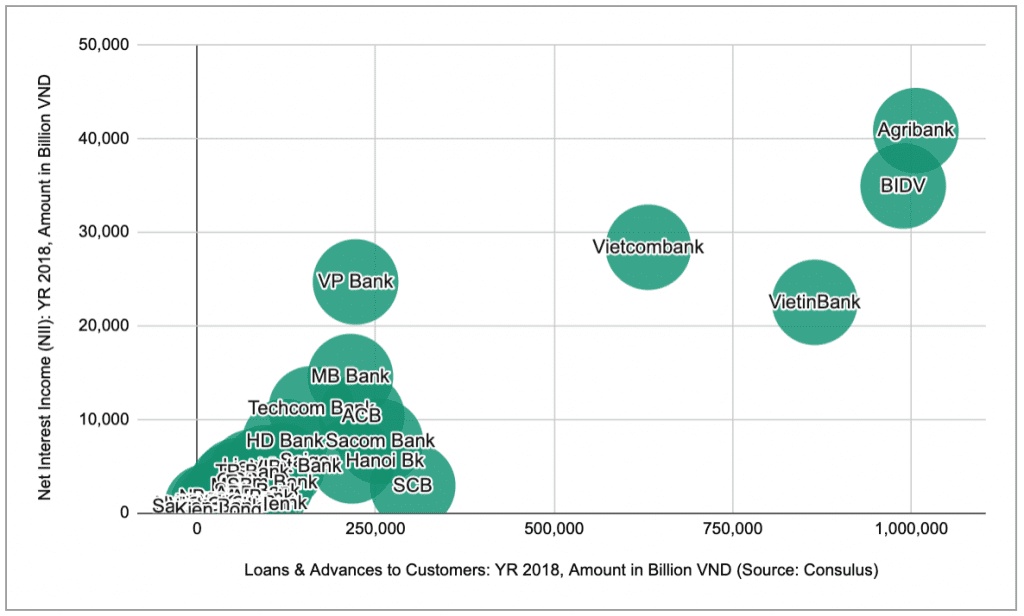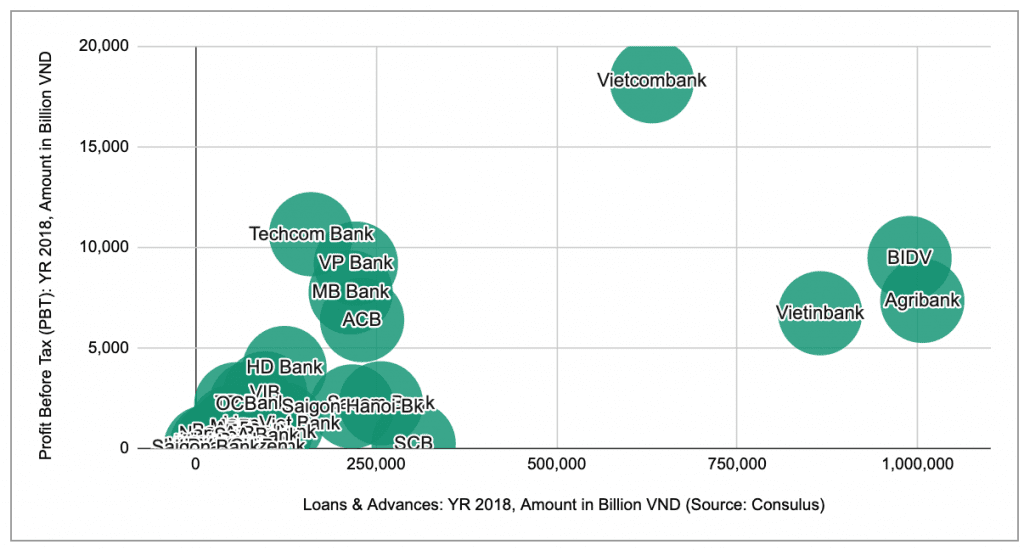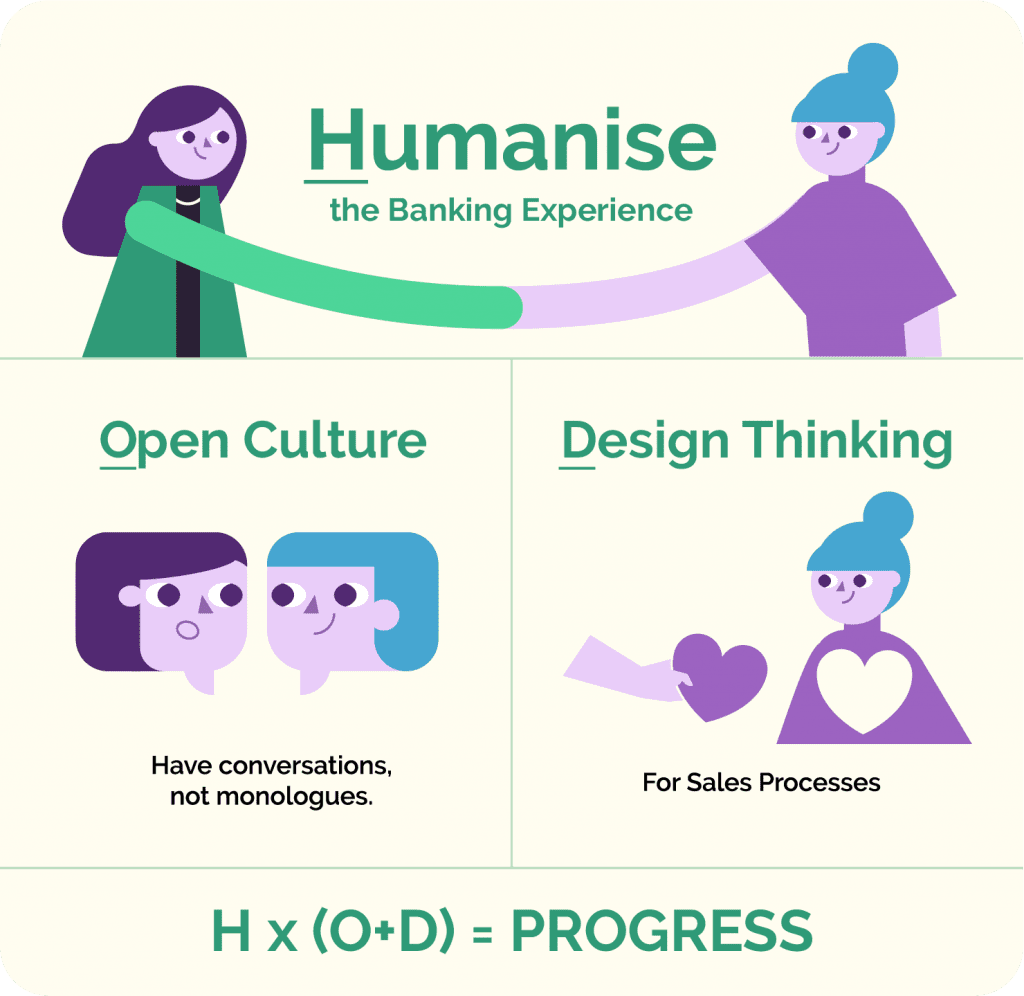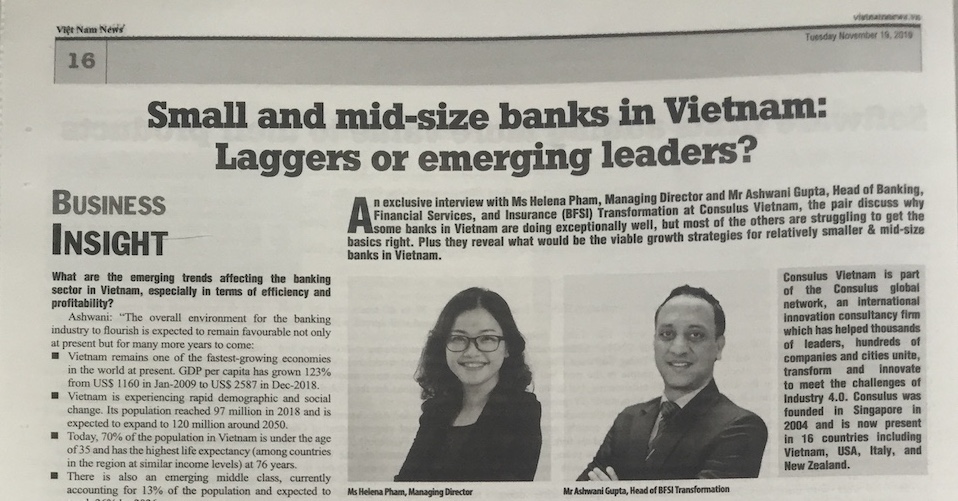From Viet Nam News, 19 November 2019: An exclusive interview with Ms Helena Pham, Managing Director and Mr Ashwani Gupta, Head of Banking, Financial Services, and Insurance (BFSI) Transformation at Consulus Vietnam, the pair discuss why some banks in Vietnam are doing exceptionally well, but most of the others are struggling to get the basics right. Plus they reveal what would be the viable growth strategies for relatively smaller & mid-size banks in Vietnam. Download the printed version.


What are the emerging trends affecting the banking sector in Vietnam, especially in terms of efficiency and profitability?
Ashwani: “The overall environment for the banking industry to flourish is expected to remain favourable not only at present but for many more years to come:
- Vietnam remains one of the fastest-growing economies in the world at present. GDP per capita has grown 123% from US$ 1160 in Jan-2009 to US$ 2587 in Dec-2018.
- Vietnam is experiencing rapid demographic and social change. Its population reached 97 million in 2018 and is expected to expand to 120 million around 2050.
- Today, 70% of the population in Vietnam is under the age of 35 and has the highest life expectancy (among countries in the region at similar income levels) at 76 years.
- There is also an emerging middle class, currently accounting for 13% of the population and expected to reach 26% by 2026.
- Approximately 69% of adults in Vietnam still don’t have a bank account – out of Vietnam’s 97 million citizens, there are approximately 50 million people, aged 15 and over, still relying on cash in 2017 (Source: World Bank, 2018).
- Moreover, the government has been taking all the necessary steps to reform the banking industry in Vietnam.
“The latest performance trends emerging out of the banking industry in Vietnam are also very encouraging. Fourteen out of 31 Vietnamese banks appeared in The Asian Banker’s AB500 ranking and survey of Asia Pacific strongest banks in 2018 (Source: The Asian Banker).
“Aside from Vietcombank, one of the larger market players, many other mid-size joint-stock commercial banks have delivered impressive results in terms of efficiency & profitability last year. Specifically, these banks are found to have relatively superior performance on Profits (PBT and PAT) and Net Interest Income as compared to some of the large banks in Vietnam. (see 2 charts, source: Consulus)


“On the other hand, several banks are slogging to even get their basics right.”
What are the key reasons for many banks not been able to get their basics in order?
Helena: “The reasons are many and widespread. They include lack of clarity in purpose, direction or strategy, missing capabilities and synergy, flawed and outdated business model, unproductive or non-inclusive culture, conflict of interests, poor execution on the ground and resistance to change, just to name a few.”
How should those banks exploit the opportunities and not be eaten up by the so-called ‘bigger fish’?
Helena: “This possibly could be ‘the best time’ for banks in Vietnam, especially so for the small and mid-size banks, to grow exponentially.
“Banks who have the potential to grow manifolds but are lagging behind the competition for some reason or another, must re-discover their true purpose, understand their inherent strengths more clearly, make realistic assessment of the market opportunities in Vietnam and overseas.
“They must identify and humbly acknowledge prevailing gaps in the CORE areas such as organisation’s culture, encourage unity and cooperation among all stakeholders, develop the required skills and readiness of staff to embrace and drive desired “change”, review the effectiveness of their current business model and strategy, org structure and experience design.
“Plus they must not get overwhelmed by temporary and unsustainable solutions to symptomatic gaps related to products (CVP), policies, procedures, channels, marketing, and technology platforms.
“This might sound like a handful but these core areas of improvements can easily be concise into this formula that Consulus has discovered from 15 years of work, Purpose + Unity = Innovation and Growth.

“In my experience, once the CORE issues are addressed appropriately, the organisations begin to operate in such a healthy and productive environment that symptomatic gaps start disappearing effortlessly and naturally.
“So, considering the available opportunities and emerging trends, small & mid-size banks in Vietnam have the best chances not only to survive but also to thrive and become market leaders.”
What would be the winning formula for banks to drive growth for retail banking during such a favourable time in Vietnam and are bank CEOs aware of it?
Ashwani: “In my opinion, the winning formula for any bank to remain relevant and drive sustainable growth for retail banking in Vietnam would be a complete transformation from providing “traditional banking services” to ensuring “life-style banking experience” i.e. personalised, highly reliable, seamless, unique, and consistent experience across channels for and beyond traditional banking activities in customers’ day-to-day life.
“But I believe that bank CEOs are well aware of this winning formula and of all the challenges they face.
“However, what they lack and need is an unbiased, reliable, action-oriented and specific analysis to demystify their current state, to identify appropriate and feasible solutions to choose from, and finally the “know-how” and “on-ground support” for execution.”
Helena: “From Consulus’ experience working with bank CEOs in the region, it’s not because they don’t want to but because these measures often require significant time, resources, and capital to implement. So, in the interim, we’ve been working with those who can’t go for transformation right now these 3 possible ways (HOD) to prepare themselves for transition, and turn industry setbacks into opportunities as follows:

1. Humanise the banking experience: build relationships and not accounts
“New trends are emerging and customers’ preferences are shifting towards technology-based platforms, channels or solutions for banking. However, the most profitable customers (~20% of the customers contributing to ~80% of the revenue), in Vietnam, are still the ones who expect and prefer relationship-based banking with a human touch.
2. Open Culture: have conversations and not monologues.
“Often, the loudest voice or the highest-ranking person dominates internal meetings. This makes the environment toxic and counter-productive. Therefore, top & middle management must have open conversations with their teams encouraging participation and inputs.
3. Design Thinking for sales processes; solve your customer’s problem/s
“Sales staff, in general, tend to adopt a hard-selling approach when it comes to managing accounts and approaching new customers to achieve their sales KPIs. It works better if we apply design thinking to have more effective, sustainable, and scalable sales processes to build long-term relationships rather than pushing products and services alone.”
*Size of the bank by loans & advances to customers, total assets, deposits from customers, and distribution network.
About Consulus Vietnam:
Consulus Vietnam is part of the Consulus global network, a global innovation consultancy firm which has helped thousands of leaders, hundreds of companies and cities unite, transform and innovate to meet the challenges of Industry 4.0. Consulus was founded in Singapore in 2004 and is now present in 16 countries that include Vietnam, USA, Italy, and New Zealand.
Ms Helena Pham is a Partner of Consulus Global and Managing Director of Consulus Vietnam. Helena has served large firms such as Yusen Air & Sea Service and LG Electronics in brand and marketing roles. She has been the lead consultant for corporate strategy, organisational alignment, and brand experience strategy for major regional brands such as SONY, Saradise, Cyclect, Fast Flow, DST, Tan Tock Seng, Spring Maternity, and enCity; for local Vietnamese brands such as Systech Trading & Technology, Hanoi Association of Women Entrepreneurs and local governments such as Danang. Helena is a featured columnist on Innovation Culture, Leadership Ascension and Branding for Asian businesses. Her insights appear regularly in Vietnam media. She is a TEDTalk speaker and often speaks at regional conferences in Vietnam and Singapore. She is currently the Chairwoman of Industry Advisory Board for RMIT, Hanoi campus.
Mr Ashwani Gupta is Head of Banking, Financial Services, and Insurance (BFSI) Transformation at Consulus Vietnam with 23 years of business strategy, strategic project management, product & portfolio management, branch banking operations, sales, business development, audit & compliance, and general management experience for the Banking Industry, NBFC, Capital Market, Real-Estate, and Enterprise Mobility. Mr Gupta and Consulus have served leading corporates and global banking institutions in Vietnam, Brunei, Myanmar, India and UAE like Maritime Bank, Bank Islam Brunei Darussalam (BIBD), HDFC Bank, ICICI Bank, BNP Paribas, HSBC.
Helena and Ashwani can be reached at vietnam@consulus.com.




